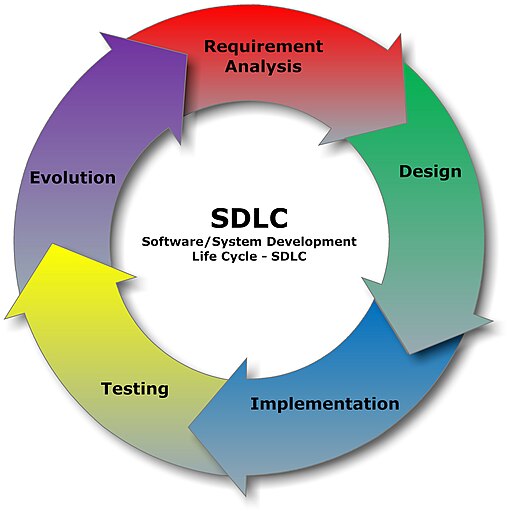Automation testing is widely applied in today's software development process. It helps make software testing more automated, saving time and increasing the accuracy of the testing process. In this article, we will explore the importance of automation testing, its common types, and the process of implementation.
What is Automation Testing?
Automation testing is a method of software testing using predefined tools and test scripts. Instead of manual testing, test scripts are automatically executed by automation testing tools. These scripts can be set up to test software features, functions, and performance.
Using automation testing helps make the quality assurance process more automated, saving time and increasing the accuracy of the testing process. It also allows software developers to focus more on product development rather than spending time on manual testing.

Importance of Automation Testing
Automation testing plays a crucial role in the software development process. Here are some reasons why automation testing is an essential method in software testing:
Time and Cost Saving
Manual testing can be time-consuming and costly. Software developers have to spend many hours testing each feature and function of the software manually. This not only costs money but can also lead to errors due to differences in the testing process. With automation testing, test scripts can be set up and run automatically, saving time and costs for the testing process.
Increased Accuracy
Manual testing can lead to errors due to differences in the testing process. Developers may overlook some features or not test all possible scenarios. With automation testing, test scripts are predefined and run automatically, increasing the accuracy of the testing process.
Easy Reusability
Test scripts in automation testing can be reused for future software versions. This makes testing faster and more efficient, as there is no need to set up test scripts from scratch.
Early Bug Detection
Using automation testing helps detect bugs earlier in the software development process. Test scripts can be run continuously and automatically, helping to detect errors as soon as they occur. This makes bug fixing easier and minimizes risks for the product.

Types of Automation Testing
There are various types of automation testing, depending on the purpose and scope of the testing process. Here are some common types of automation testing:
- Unit Testing: Unit testing involves testing the smallest units of code to ensure accuracy and proper functioning. The unit of code can be a function, a module, or a class. Unit testing helps detect and fix errors more easily, as well as increase the accuracy of the software.
- Integration Testing: Integration testing checks the interaction and integration capabilities between system components. This helps detect and fix errors related to communication and interaction between components, ensuring the integrity and synchronous operation of the system.
- System Testing: System testing checks the entire system's operation as expected when deployed in a production environment. This ensures that the system operates stably and reliably before being put into operation.
- Acceptance Testing: Acceptance testing is the process of verifying the correctness and compliance of the software features with the user's requirements. It is performed by end-users to ensure that the software features meet the specified acceptance criteria from the beginning.
- Operational Testing: Operational testing focuses on ensuring that the system operates reliably in a production environment. This helps detect and fix issues related to performance, security, and system scalability.
- Non-functional Testing: Non-functional testing involves testing factors unrelated to software features, such as user experience, performance, security, scalability, and compatibility. This ensures the system's flexibility and efficiency in real-world situations.
These types of automation testing are often applied in combination to ensure the highest coverage and quality for the developed software.

Automation Testing Process
Implementing automation testing requires a careful and planned process. Here are the basic steps that development teams can follow:
- Identify Testing Requirements: This is the most important step in the automation testing process. Testing requirements will determine the necessary test scenarios to ensure the accuracy and functionality of the software.
- Set Up Testing Environment: The testing environment needs to be set up to resemble the most realistic environment possible. This ensures accurate and reliable testing.
- Set Up Test Scripts: Test scripts are set up based on the identified testing requirements. These scripts can be written in programming languages such as Java, Python, or C++, built on specialized frameworks like Selenium, Appium, etc.
- Run Test Scripts: Test scripts are automatically executed by automation testing tools. The results of the scripts are evaluated to determine the accuracy and functionality of the software.
- Detect and Fix Errors: If errors are detected during the testing process, developers will fix them and rerun the test scripts to ensure the software's accuracy.
- Report Test Results: The results of the testing process are reported to developers and managers for evaluation and decision-making.

Future of Automation Testing
With the continuous development of technology, automation testing will become an integral and indispensable part of the software development process. Automation testing tools will also be improved and developed to meet the increasing demands of businesses.
Furthermore, with the significant advancements in Machine Learning and Artificial Intelligence, applying them to automation testing will make the testing process much faster and more efficient.
How has Viindoo Implemented Automation Testing?
Viindoo is a comprehensive enterprise management system that has implemented automation testing into its software development process. Each developed feature undergoes a rigorous quality assurance process as follows:
- Automated Quality Check with Runbot (Viindoo's automated testing system): Developers write automated test scripts, including full unit testing, integration testing, system testing, and acceptance testing. Runbot conducts tests based on these scripts and notifies developers of any detected errors. Developers continue to refine until Runbot approves.
- Manual Quality Check: After passing through Runbot, the QA/QC team conducts manual testing. QC specialists review existing automated test scripts, add new scripts if necessary, and control aspects that automation testing may not cover adequately, such as user experience, scalability, and compatibility.
This testing process is tightly integrated with the CI/CD pipeline, making feature development smooth, fast, and consistent. This also helps Viindoo become one of the most reliable ERP software and ERP customization providers in the market today.
Viindoo Customizing Features Service
Expand the power of your ERP software with our high quality developers and integrated automation testing system.

Conclusion
Automation testing is an essential method in modern software development. It helps ensure accuracy, compatibility, and proper functioning of the software more easily and efficiently. With the continuous development of technology, automation testing will continue to be improved and developed to meet the increasing demands of businesses.
FAQs
Automation testing is a process of using technology and automation tools to perform tests in the software development process automatically, enhancing the accuracy, performance, and efficiency of the testing process.
Automation testing helps minimize time and costs for the testing process, increases the accuracy and reliability of the product, supports rapid and continuous deployment, and creates living documentation of the product's features and behavior.
Common tools and methods in automation testing include frameworks such as Selenium, Appium, and Robot Framework, TDD and BDD techniques, Continuous Integration and Continuous Testing, and scripting and automation.
Automation testing is widely applied in fields such as software, healthcare, manufacturing, and finance to enhance product quality, reliability, and flexibility while minimizing time and costs for the testing process.
To begin implementing automation testing in your software project, you can plan and deploy the automation testing process by identifying goals, selecting appropriate tools and frameworks, writing test scripts, and automating test execution.
